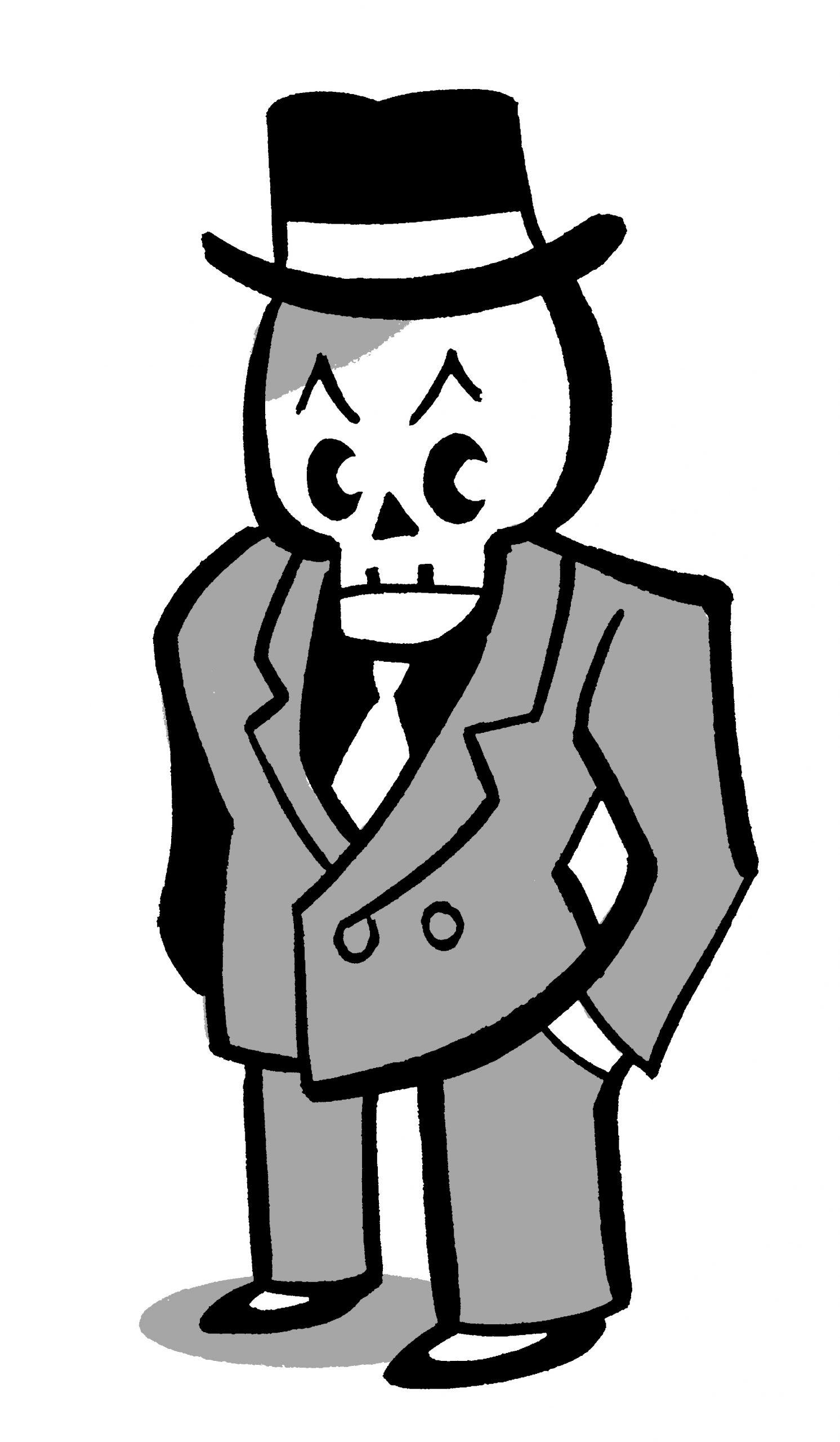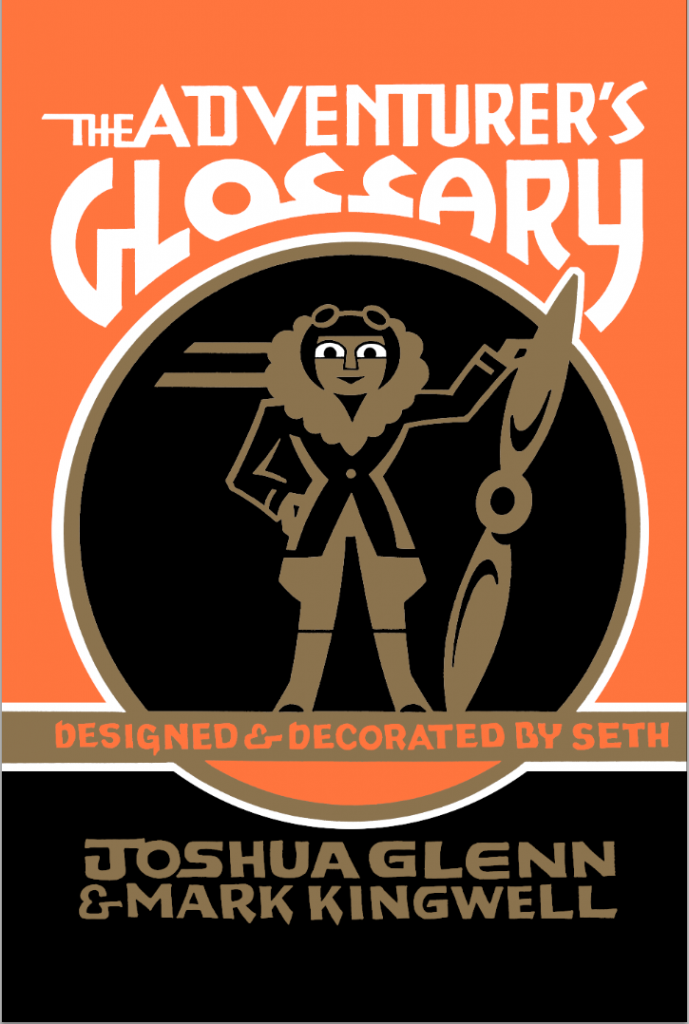WATCHWORDS (5)
By:
December 21, 2021

In October, McGill-Queen’s University Press published The Adventurer’s Glossary by HILOBROW’s Joshua Glenn, in collaboration with the philosopher Mark Kingwell and the cartoonist Seth. The following excerpt from the book was first published by BOING BOING.
Here are five sample entries from the glossary’s “M” section:
MacGUFFIN
A MacGuffin is “the mechanical element that usually crops up in any [adventure] story,” Alfred Hitchcock explained about his 1935 film The 39 Steps. “In crook stories it is always the necklace and in spy stories it is always the papers.” Like a game, an adventure story has “mechanics” — rules and procedures that define the player’s objective and create satisfying challenges — some of which are more obviously artificial than others. PS: Postmodern adventures, like Pynchon’s V. or Tarantino’s Pulp Fiction, often feature obtrusively meaningless MacGuffins.MAKE ONE’S BONES
The gangster argot phrase make one’s bones was popularized in Mario Puzo’s The Godfather and its 1972 movie adaptation. (“Sonofabitch! Do you know who I am? I’m Moe Greene! I made my bones when you were going out with cheerleaders!”) It means “commit a murder in order to be respected in a gang” and, in less violent contexts, “earn respect the hard way.”MAQUIS
During the German occupation of France in 1940–45, men and women who escaped into the mountains to avoid providing forced labour organized themselves into active resistance groups. The mountain terrain was covered with a scrub growth called maquis, so these guerrilla bands soon became known as the Maquis or maquisards. The term was soon extended to movements in Italy, Belgium, and other occupied countries regardless of what sort of plant life was found there.
See: GUERRILLA, RESISTANCEMOXIE
One of the first mass-produced soft drinks in America was manufactured in Bedford, N.H., in the 1880s; originally, it was a patent medicine marketed as a cure-all for modern life’s complaints, from low energy to feeling overwhelmed. Perhaps this explains why the product’s name, Moxie, in the 1930s came to mean “the ability to face difficulty with spirit and courage” – and by extension, “vigour” and “initiative.”MURPHY’S LAW
Captain Ed Murphy, an engineer who conducted experimental crash research testing at Edwards Air Force Base in 1949, reportedly said something along the lines of “If anything can go wrong, it will.” Although he was far from the first to express this notion, Murphy’s cautionary pronunciamento was popularized – at first particularly among aviation engineers, then more widely – and called, ironically, Murphy’s Law. In Great Britain, Sod’s law, no doubt derived from the commiserating phrase “unlucky sod,” expresses more or less the same idea.
Looking for a gift for a word nerd and/or lover of adventure? Your quest ends here!

***
MORE ADVENTURE on HILOBROW: Katia Krafft | Freya Stark | Louise Arner Boyd | Mary Kingsley | Bruce Chatwin | Hester Lucy Stanhope | Annie Smith Peck | Richard Francis Burton | Isabella Lucy Bird | Calamity Jane | Ernest Shackleton | Osa Helen Johnson | Redmond O’Hanlon | Gertrude Bell | George Mallory | Neta Snook | Jane Digby | Patty Wagstaff | Wilfred Thesiger | Joe Carstairs | Florence “Pancho” Barnes | Erskine Childers | Jacques-Yves Cousteau | Michael Collins | Thor Heyerdahl | Jean-Paul Clébert | Tristan Jones | Neil Armstrong
